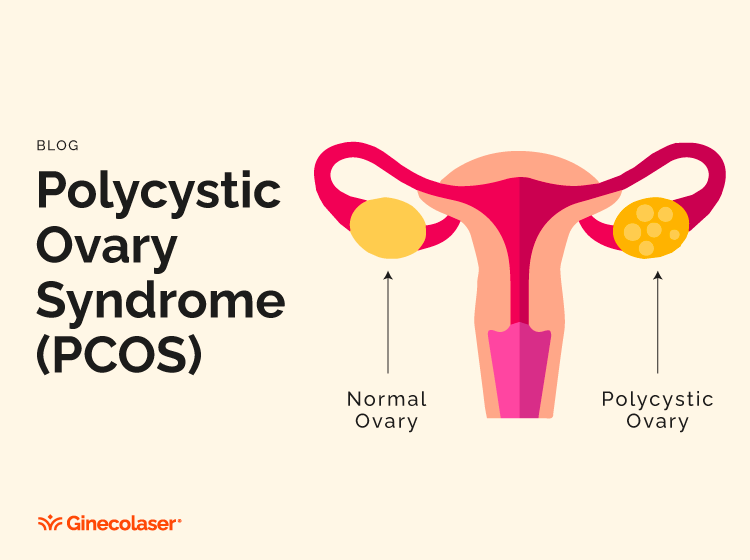Gyne Blog
Polycystic Ovary Syndrome (PCOS) and its Impact on Health Throughout Life.
Polycystic Ovary Syndrome is an endocrine, metabolic, and reproductive disorder that affects millions of women worldwide.

It is a condition of multigenic origin or closely related to certain habits and customs.
Let's discuss the spread of this condition and how it affects different stages of life. During adolescence, it is important to understand that the multifollicular appearance of the ovaries is a normal physiological feature at this stage. Menstrual cycle disturbances occurring during the first 2 to 3 years of gynecological life should not be confused with Polycystic Ovary Syndrome.
The diagnosis of PCOS is based on the Rotterdam consensus criteria published in 2004. According to these criteria, PCOS is diagnosed when at least two of the following characteristics are present:
- Irregular or absent menstrual cycles (oligo or chronic anovulation).
- Excess androgens in the body (hyperandrogenism).
- Polycystic ovarian morphology, detected through ultrasound or sonography.
The approach to treatment varies depending on the patient's age and circumstances and should be adapted for:
- Adolescents.
- Adult women not interested in reproduction.
- Adult women desiring pregnancy.
- Women approaching menopause with a history of PCOS during their reproductive years.
It is crucial to rule out other underlying causes of symptoms and address certain habits and behaviors that can improve the quality of life, such as:
- Quitting a sedentary lifestyle and smoking.
- Maintaining age-appropriate nutrition.
- Supplementation with vitamin D if necessary.
- Selecting the most suitable oral contraceptive for each patient.
- Using insulin sensitizers when appropriate.
- Considering treatments to control elevated androgen levels.
In the case of women in menopause or near it, it is important to consider the metabolic implications that can affect their health. This includes an association with metabolic syndrome, carbohydrate metabolism disorders, blood lipid issues, high blood pressure, abdominal obesity, sleep apnea, psychological factors, and a potential link to cancer.
Diagnosing PCOS throughout one's life can be challenging due to the variety of clinical presentations. A detailed approach is required, combining clinical and biochemical data to differentiate between other possible medical conditions and their associations. This allows for the design of a treatment that minimizes side effects, promotes proper nutritional health, and encourages the adoption of an active lifestyle, all crucial factors in addressing this situation effectively.
